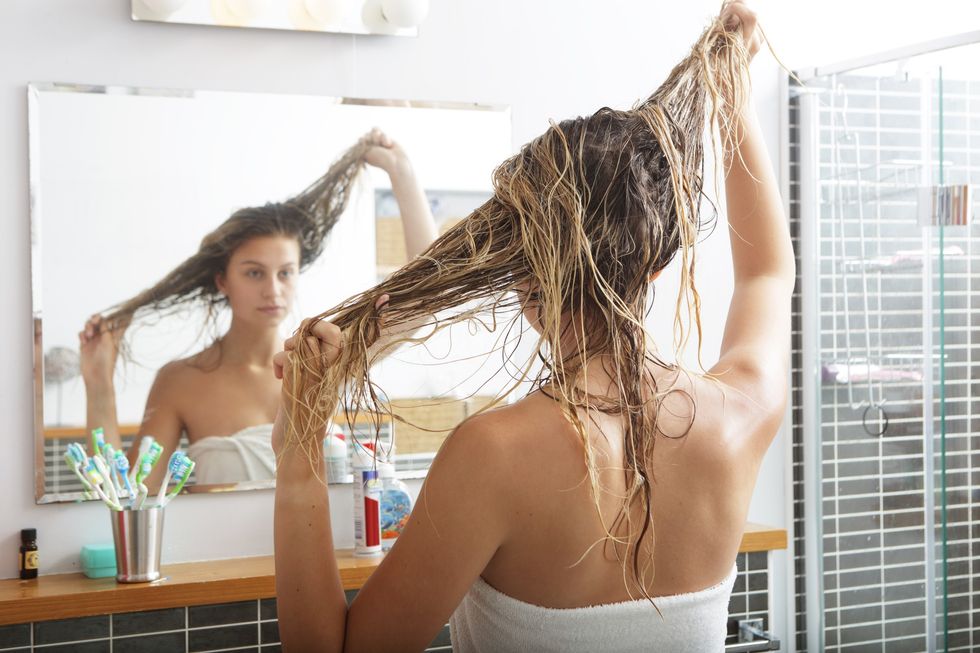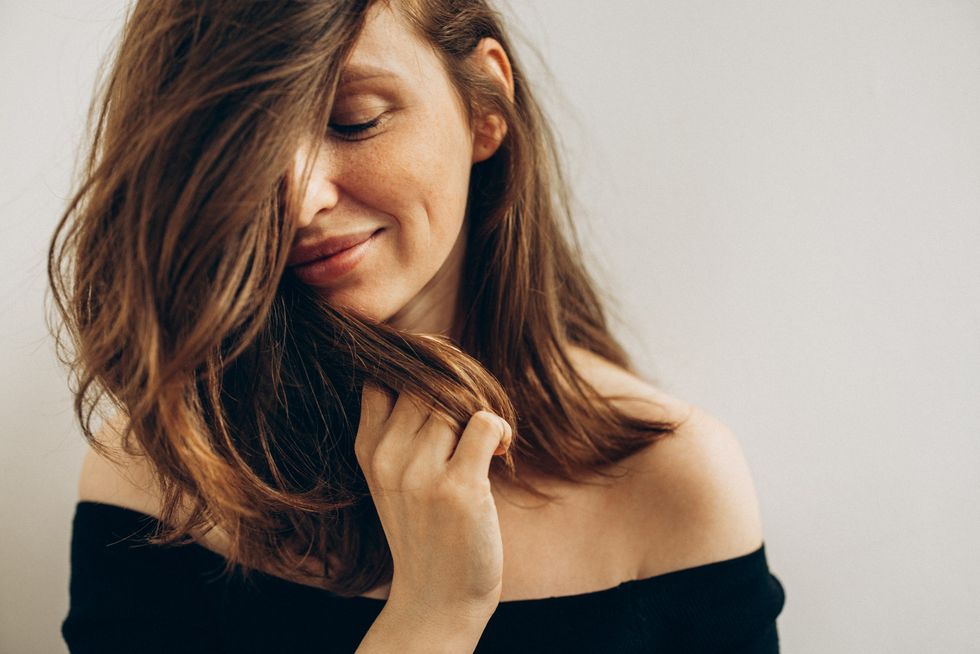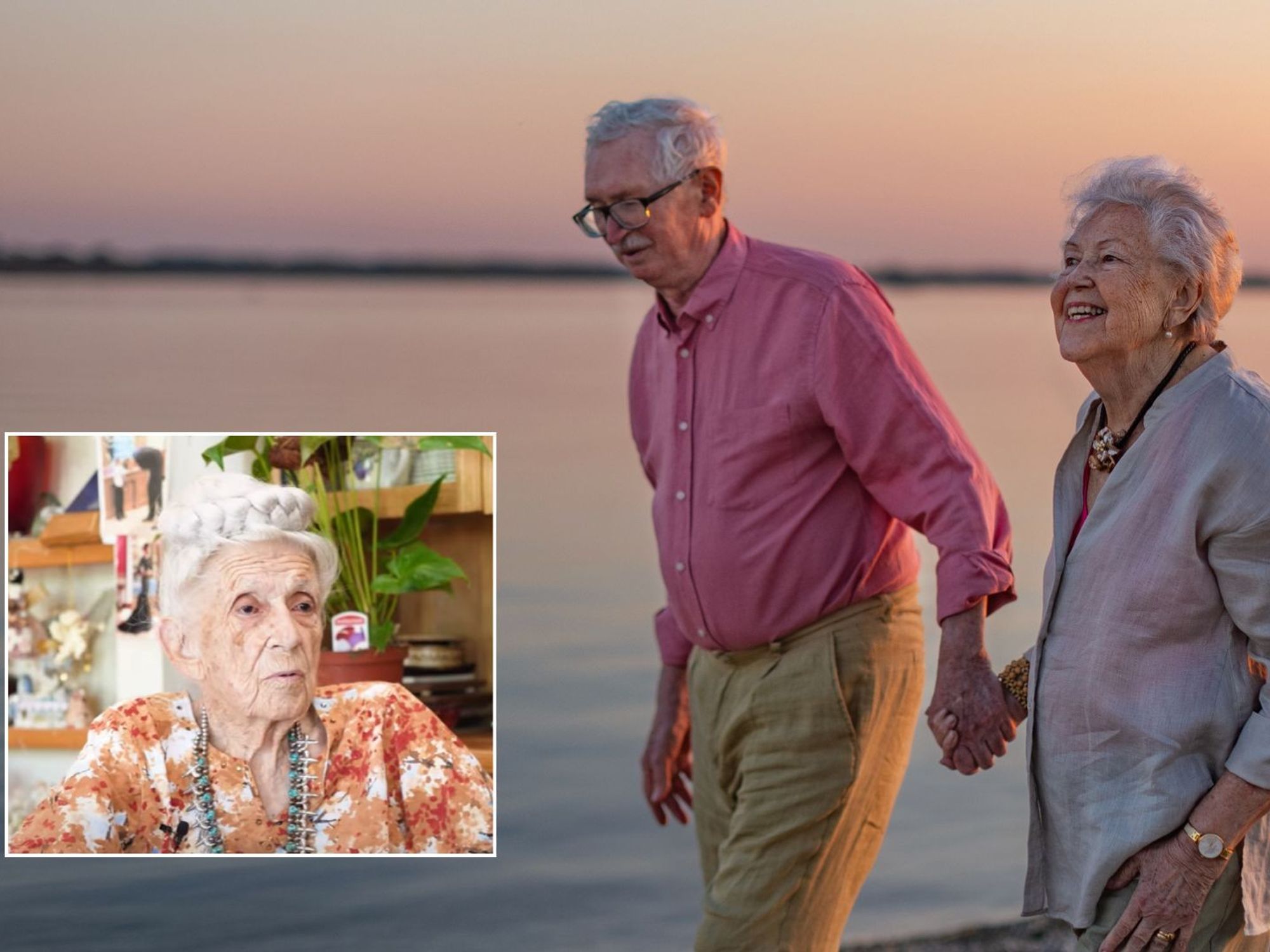How you dry your hair can affect its condition
GETTY
An expert discussed why the best way to dry your hair can depend on a number of factors
Don't Miss
Most Read
Trending on GB News
The debate between blow-drying and air-drying hair has long been a topic of discussion among beauty enthusiasts and professionals alike.
How you choose to dry your hair can affect its shine, overall health and how prone it is to breakages, according to a doctor.
Dr Anil Sharma, a medical doctor at Sharma Skin & Hair Surgery, explained: "When it comes to drying your hair, both blow-drying and air-drying have their pros and cons."
Air-drying is a great and "gentle" way to protect your locks, but the expert added that blow-drying also has some surprising benefits. He said that while excessive heat from blow-drying can be damaging, recent research suggests it may not be as harmful as previously thought.

There is much debate over the best way to dry your hair
GETTY"An interesting study in the Journal of Cosmetic Science suggests that blow-drying, when done properly, may actually be less harmful than leaving hair damp for extended periods," Dr Sharma notes.
This revelation challenges conventional wisdom and highlights the importance of understanding the nuances of hair care.
Blow-drying hair offers both advantages and potential risks. While it provides quick results and can help style hair effectively, excessive heat can lead to damage over time.
However, Dr Sharma pointed out: "While excessive heat from blow-drying can be damaging, an interesting study in the Journal of Cosmetic Science suggests that blow-drying, when done properly, may actually be less harmful than leaving hair damp for extended periods."
This challenges the common belief that air-drying is always the safer option. The key lies in proper technique.
Using the right temperature settings and maintaining an appropriate distance between the dryer and the hair can minimise damage.
It's also worth noting that blow-drying can be beneficial for those with thick hair, reducing the time hair remains damp and potentially lowering the risk of bacterial growth.
Air-drying hair is often seen as a gentler alternative to blow-drying. Dr Sharma confirms this view, stating: "Air-drying is gentler and helps preserve your hair's natural texture, but it takes longer."
This method allows hair to retain its natural oils and reduces exposure to heat damage.
However, air drying is not without its drawbacks. Dr Sharma warns: "If your hair remains damp for too long, it can become a breeding ground for bacteria."
LATEST DEVELOPMENTS

Follow the correct technique when drying your hair
GETTY IMAGESThis risk is particularly relevant for those with thick or long hair, which may take several hours to dry completely. The extended period of dampness can potentially lead to scalp issues and hair damage.
Dr Sharma emphasises the importance of balance: "Finding the right balance is key to maintaining healthy hair."
Sleeping with wet hair is a common practice for many, but it comes with potential risks. Dr Sharma added: "Wet hair is more fragile and prone to breakage, which can lead to a lot of frustration in the morning."
This increased fragility can result in damaged hair and split ends. Moreover, damp hair creates an ideal environment for fungal growth.
"Sleeping with damp hair creates an ideal environment for fungal growth, such as Malassezia, which thrives in moist conditions and can cause dandruff," Dr Sharma warned.
Despite the lack of evidence for these specific concerns, the potential for hair damage and fungal growth makes it advisable to dry hair before sleeping.








